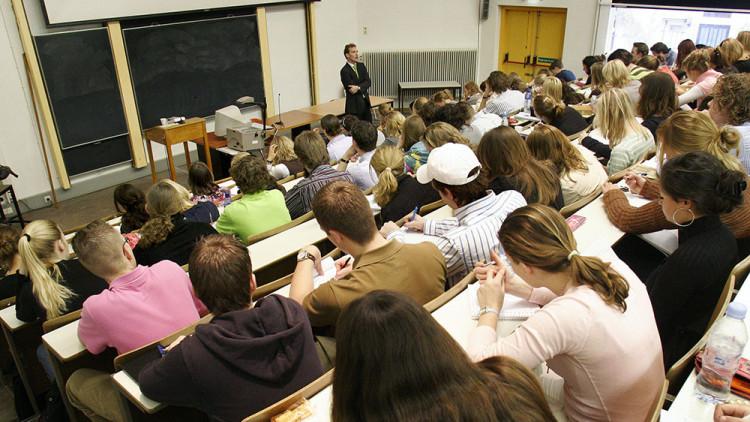The new normal

It was two years ago: the last day of “the old normal”. Like a delayed train, the coronavirus pandemic finally arrived in the Netherlands that afternoon. Teaching to groups larger than one hundred people would be suspended for the time being. Because my students and I fell below that threshold, I was still under the illusion that I wouldn’t be affected much, but some of the students tempered my optimism and they were proved right that very evening.
From that moment on, we started to work from home. Lectures and tutorials were given on Teams and all communication took place remotely. Lecturers talked to their laptops, into a digital void. The students’ cameras were often switched off ("bad connection", they said) but even when they were on, it was impossible to gauge whether the message had been absorbed. “Are there any questions?” Stony silence followed. Then, after five seconds or so: “Everything is clear, sir.”
There is now a generation of students at the university who have never known anything else. They’re second-year students now and it looks like they have paid a high price. We know that depression and anxiety disorders have increased alarmingly among these students. The lack of social contact has been devastating for many of them, but it has also left other traces, which have been overlooked.
Cheating and fraud have also increased tremendously among this generation of students. The number of plagiarism incidents has skyrocketed, but students also frequently share documents with each other when doing homework. “It was just too easy” is what I’ve been told more than once. Lack of control and long-term isolation are not conducive to the development of common standards. “Everyone around me does it”, a student told me. She started cheating purely because the results of other students were higher than hers.
What I find even worse is that the sense of academic community is crumbling. The pandemic may not be over yet, but most of the restrictive measures have been lifted — yet, many of my students are still staying at home. Some have a cough and think it’s unwise to come, others have a family member or roommate with Covid-19, or they have a grandmother who’s vulnerable to the virus, and so on and so forth.
As a result, my classes have become "hybrid". I have to cater to two groups at once. One group is in the classroom, while the other group is elsewhere on their laptops. Their cameras remain switched off, they often cannot make out what is being said in class ("can you repeat the question, please?") and they still don’t answer my questions. In the meantime, I’m expected to come up with extra assignments for the people at home to give them extra time and show them leniency.
In the space of two years, an entire academic culture has gradually been compromised, and whether we will be able to restore it in this “new normal” remains to be seen. In any case, this will require a lot more from students and lecturers than simply opening the lecture halls again.